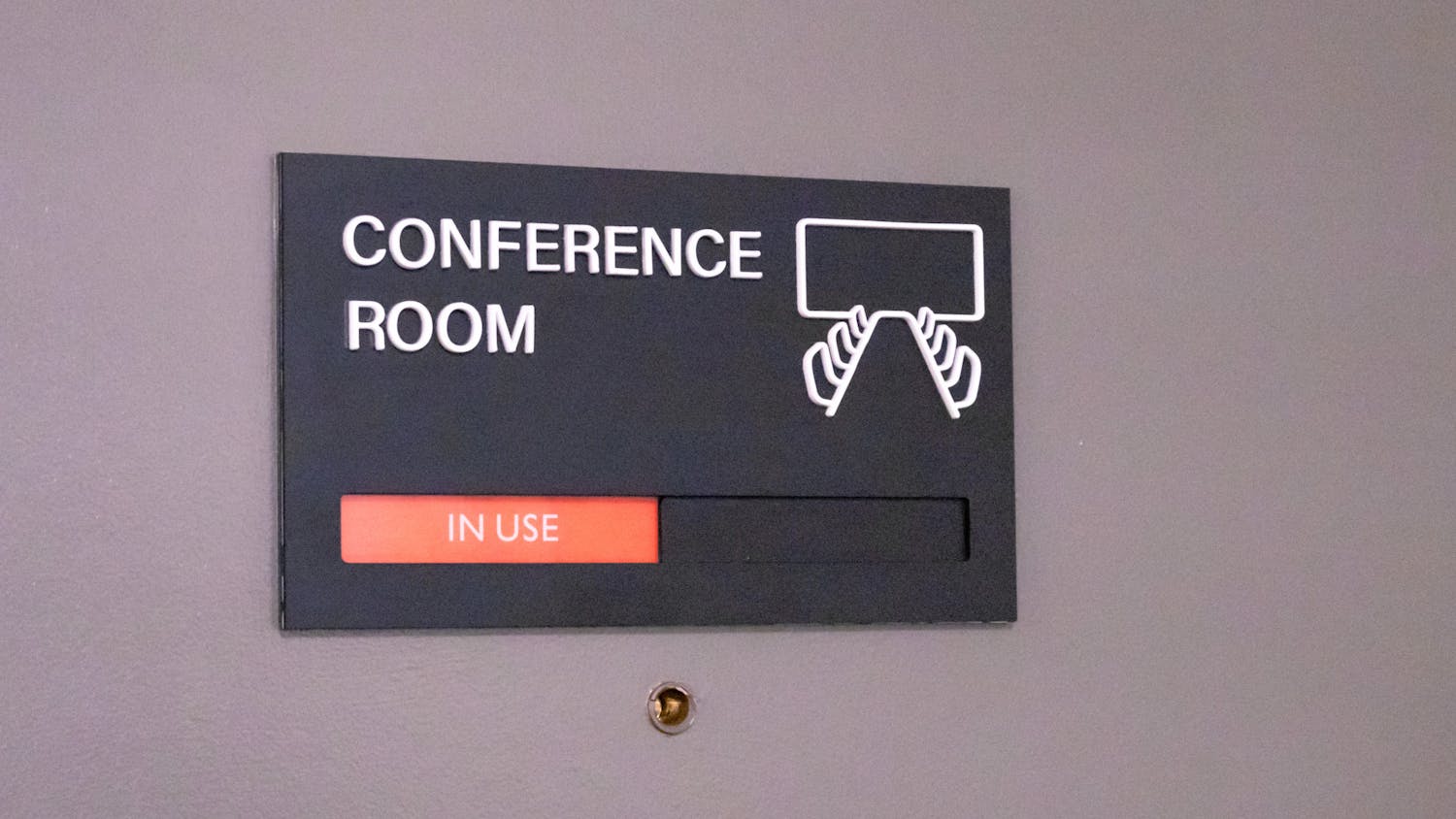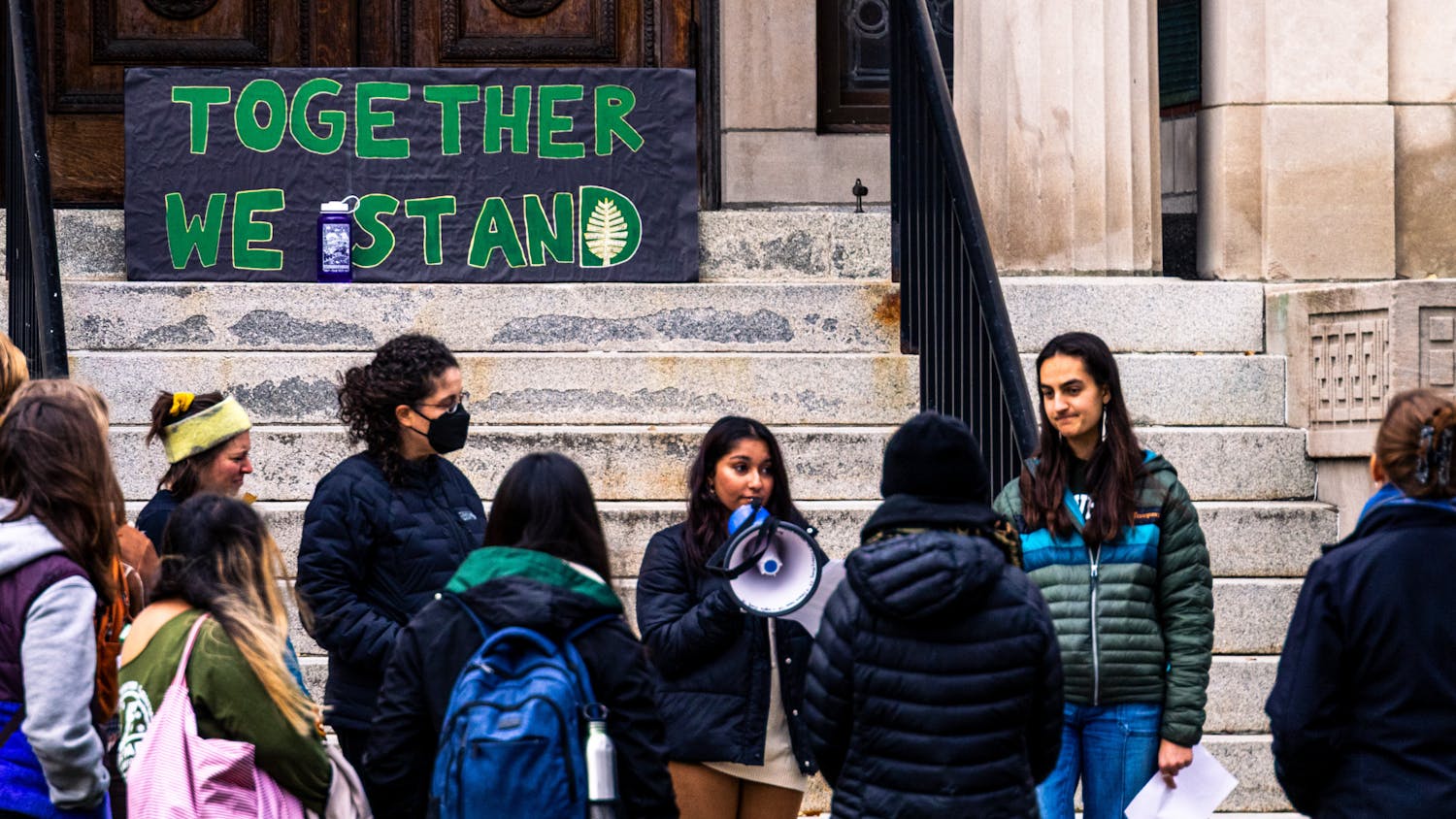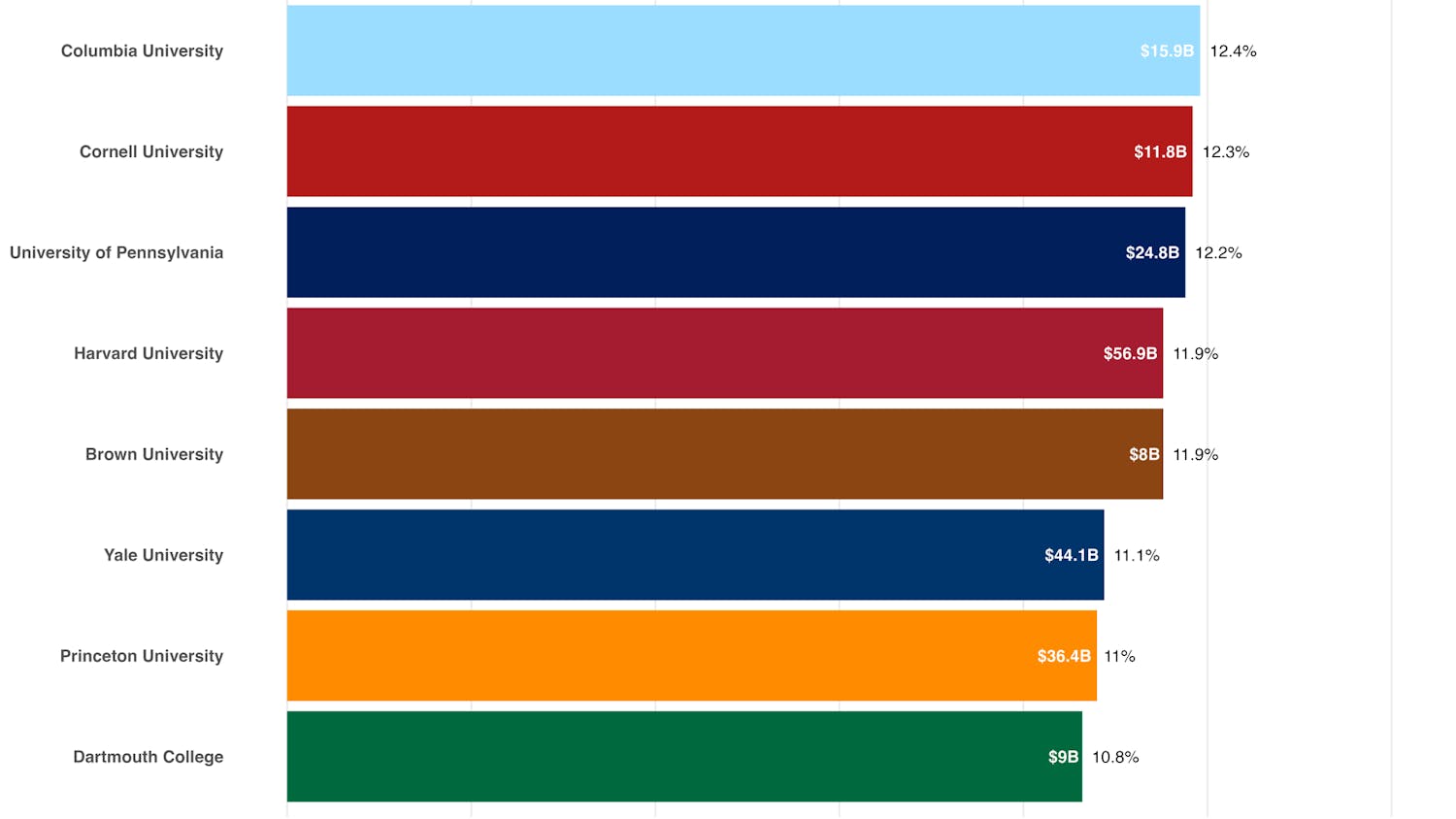For Dartmouth seniors looking for jobs, prospects are slightly better this year compared to last year, according to Assistant Director of Career Services Monica Wilson.
This is in line with reports indicating that the job market is slowly starting to pick up after several years of nail-biting for many, even those with college degrees. Hires for this year's college graduates are expected to be up 12.7 percent from last year, according to the National Association of Colleges and Employees.
Sherrie Angus '04, an English major, is looking for a job in teaching.
"I know I'll definitely have some kind of job," said English major Sherrie Angus '04. She said she is not anxious about not having a job yet, but said it is frustrating when many positions require formal teaching experience.
Choice of major is a big factor in job and salary prospects.
According to a NACE report on starting salaries for 2004, liberal arts majors can expect to make $30,153 after graduation. Economics majors can expect $40,596. Computer engineering majors top the list at $53,117.
Angus expressed concern over the options available to her as an English major. "If you don't want to go the corporate route, if you didn't major in economics or something, what is there for you to do?" she said.
Aaron Sathre '04, an economics major, has already accepted a job offer from the Boston Consulting Group.
"It's nice to be able to focus on some other activities and my classes this term," Sathre told The Dartmouth. "I know from talking to people outside of Dartmouth that I am very fortunate to have a job lined up before graduation."
Angus noted that finding a job is a job in itself.
"Most of my friends are in the same position I'm in," she said, explaining that they are having a hard time finding a job while balancing school work.
Sathre agreed. Job hunting is a "long process, not easy by any means ... Once your resume is done and cover letter's sent out, a lot of the rest of the time is spent preparing and conducting interviews."
Ryan Bennet '04 said he spent about 15-20 hours a week on average on his job search.
"Weeks when I had to travel for final rounds were much more time-intensive," he told The Dartmouth.
But, Bennet thought that the recruitment process flowed smoothly. "Of course there were highs and lows, but I felt supported by the people at Career Services and expected all of the challenges I confronted."
According to Wilson, financial services organizations tend to hire in the fall because they have structured training programs. Firms with college recruiting programs generally also hire in the fall because they can better forecast their employment needs for the year, she said.
But, for those who don't have jobs yet, there's hope, Wilson said. Most entry-level job openings come up in the spring, when current employees who have applied to graduate school receive their acceptances.



